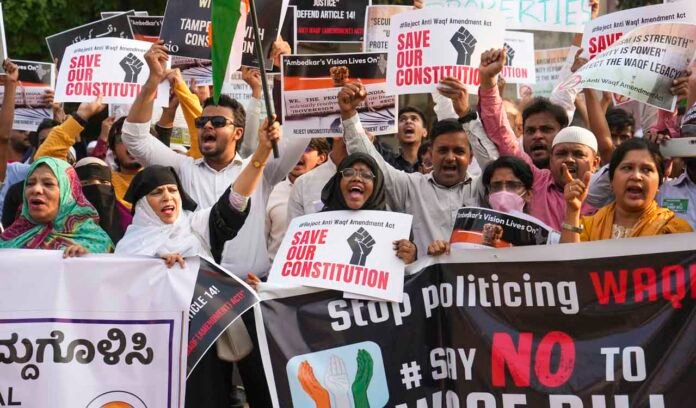The Greater Guwahati Muslim Society convened an Intellectual Meet to discuss the recent Waqf (Amendment) Act, 2025, which has generated considerable debate within the community. The act, aimed at reforming the management of Waqf properties, has stirred concerns regarding its implications, particularly among Muslim communities in Assam and across the country. As the discussions unfolded, leaders voiced their opposition to the amendment and demanded its immediate withdrawal, citing potential threats to the rights and autonomy of Waqf institutions.
The society’s members raised a variety of concerns regarding the amendment, which seeks to streamline the functioning of Waqf boards and place more control in the hands of government-appointed officials. Many participants argued that this increased oversight would erode the autonomy of the Waqf institutions, traditionally managed by Muslim communities and their religious leaders. According to the members, the amendment would grant the central government greater authority over Waqf properties, which could lead to the mismanagement and exploitation of these assets.
While the government has defended the amendment as necessary to improve the efficiency and transparency of Waqf property management, critics argue that it disregards the historical and cultural significance of these properties. For generations, Waqf properties have been vital in supporting religious, educational, and charitable activities within the Muslim community. The act, they claim, could jeopardize these community-driven initiatives by giving the government undue influence in their management.
During the meet, the society’s leaders emphasized the importance of preserving the integrity and independence of Waqf institutions. They highlighted that these properties were established with the intent to serve the welfare of the Muslim community, and their management should remain in the hands of those who are intimately familiar with the community’s needs. The society expressed concern that the amendment could pave the way for the government to encroach upon the assets of the Waqf properties, leading to the diversion of resources intended for religious, educational, and welfare purposes.
In light of the potential consequences of the amendment, the Greater Guwahati Muslim Society announced its decision to take legal action against the Waqf Act Amendment. The society’s leaders stated that they would challenge the amendment in court, with the goal of having it overturned or at least modified to better protect the rights of the community. The society’s legal representatives have already begun preparing a case, arguing that the amendment infringes upon the fundamental rights of Muslim communities as guaranteed by the Constitution of India.
Several prominent community members present at the meet expressed their solidarity with the cause, vowing to continue fighting for the protection of Waqf properties and the rights of the Muslim community. They called on fellow Muslims across the country to unite in opposition to the amendment and to work together to ensure that the government’s actions do not undermine the community’s religious and social institutions.
The society also discussed strategies for mobilizing public opinion against the Waqf (Amendment) Act, 2025. Plans to organize protests, petitions, and awareness campaigns were proposed, with the aim of raising awareness about the potential harms of the amendment and garnering support from both Muslim and non-Muslim communities. The society believes that by generating widespread awareness, it can build a broad coalition of individuals and groups who are committed to protecting the rights of marginalized communities and ensuring the integrity of religious institutions.


